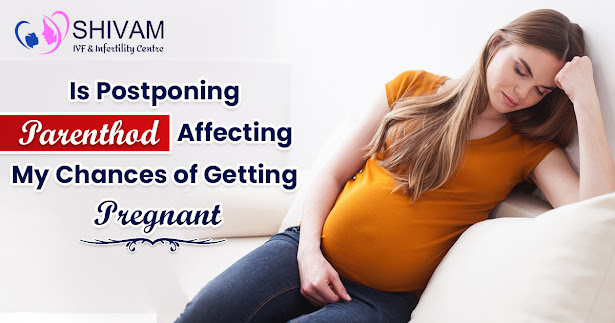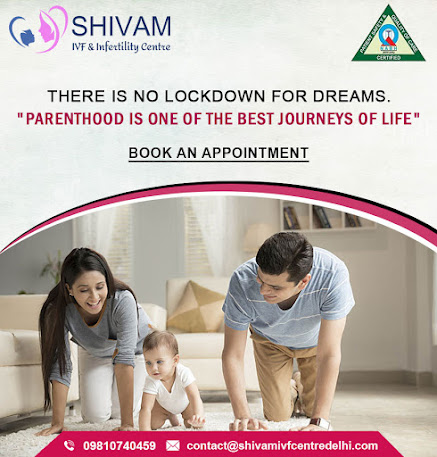Is Postponing Parenthood Affecting My Chances of Getting Pregnant?
Many people no longer believe they must be in a rush to have children at a young age because of the scientific advancements that have been made. More so when they are more focused on locating the ideal partner, advancing their education, advancing their careers, and establishing a strong financial foundation before accepting parental responsibility.
But are
there risks involved in delaying childbirth for longer?
As per IVF Delhi, This is especially true for
women who are frequently reminded that their biological clock is running out.
What steps can a woman take to lessen these risks? What you should know about
waiting longer to get pregnant and potential workarounds are covered in this
blog.
Age and Pregnancy
When it
comes to having children, women have a limited window. As long as they are
menstruating, they are technically capable of becoming pregnant. That spans the
time before menopause and the beginning of puberty. The typical age range for
this is 12 to 51 years old.
However, it is important to note that as women age, their fertility tends to decrease. Around their late 20s to early 30s, women are at the height of their fertility. The longer you wait, the more the decline can make it difficult to become pregnant. According to some studies, women should have their first child at the age of 30.5 in order toto be in the best possible health.
The
decrease in the number of fertilized eggs is the cause of this decline. All of
a woman's eggs are present when she is born. As they age, their egg production
decreases and their egg quality declines. After the age of 36, the rate at
which fertility declines accelerates. For older mothers, the risk of
complications during pregnancy is also increased.
The
risk of miscarriage, stillbirth, premature birth, a challenging delivery, a
child with chromosomal abnormalities like down syndrome, and other pregnancy
risks is higher for older mothers who do succeed in getting pregnant.
In
conclusion, yes. The likelihood of a healthy conception and delivery decreases
as you put off becoming a parent. The trend toward older mothers has not been
impacted by this, though. Today, a growing number of women around the world put
off having their first child until their 30s or 40s. To dive more deeper into this, you can also connect with IVFDoctor in Delhi.
Age and fatherhood
Given
the greater burden placed on the woman who must carry the pregnancy and the
shorter fertility period, we have primarily concentrated on the effects of
delaying motherhood. Even so, it is a problem to have older fathers.
In
recent years, the average paternal age has also risen in the developing world.
As women age, the quality of their eggs tends to deteriorate, and the same is
true for men's sperm. The likelihood of sperm quality defects is higher. This
has shown that children of older fathers are more likely to experience
stillbirths, congenital abnormalities, and other health issues.
A study
revealed that there were lower odds of a successful birth even in situations
where In Vitro Fertilization (IVF) was used to assist conception and there was
an older father over the age of 50.
Overall,
neither the mother nor the father should put off becoming parents.
Conclusion
Even
with the higher risks and difficulties linked to delaying parenthood, a large
number of older parents can conceive and give birth to healthy
children. Even more so when you take into account that many older parents who
seek out fertility treatments and prenatal care frequently have more stable
financial situations and can afford high-quality medical care, which can
increase the likelihood of a safe conception and delivery.
Although
having children when you are younger is ideal, not everyone is ready to assume
that responsibility at such a young age. The circumstances of an individual or
couple, which can greatly differ, will determine the best time to conceive.
However, if you realize that having a baby will soon be difficult because of
your age, talk to your gynecologist or a fertility specialist or connect to Dr. Bhavana Mittal.
The
same is true if you deliberately decide to put off having children until your
late 30s or early 40s. If you have questions about infertility treatment
options or pregnancy planning and care, get in touch with the Best IVF Clinic in Delhi i.e. Shivam
IVF.




Comments
Post a Comment